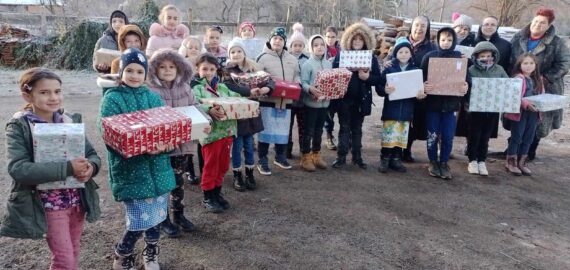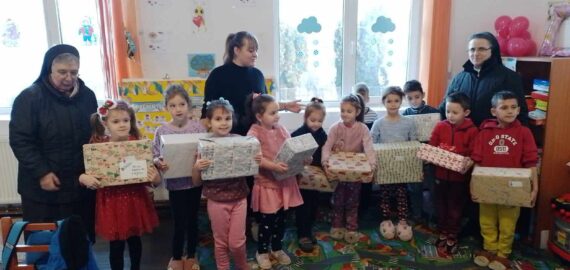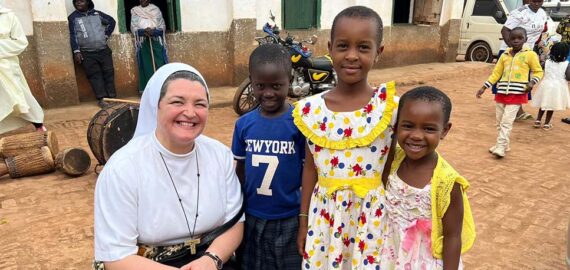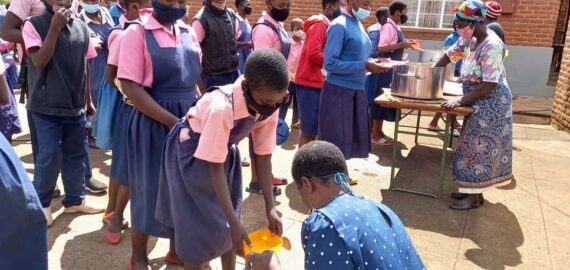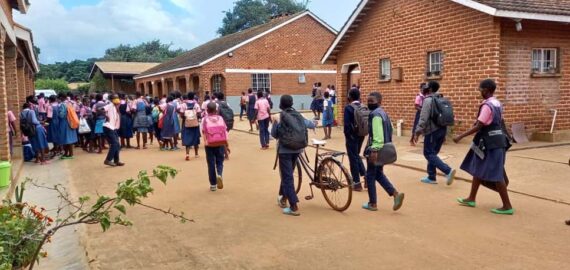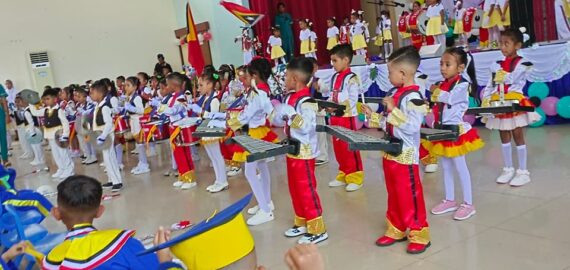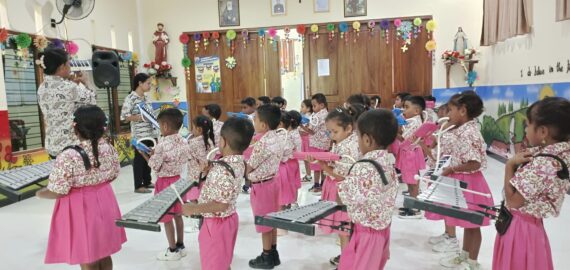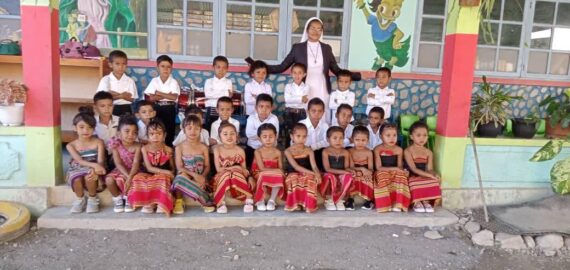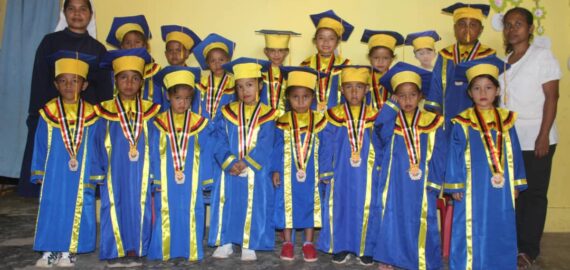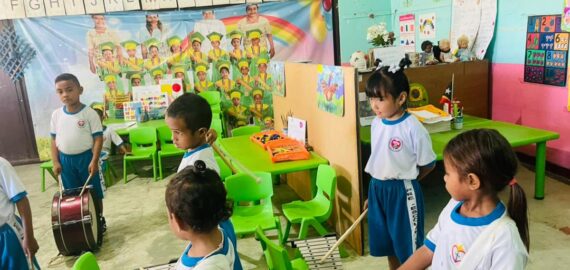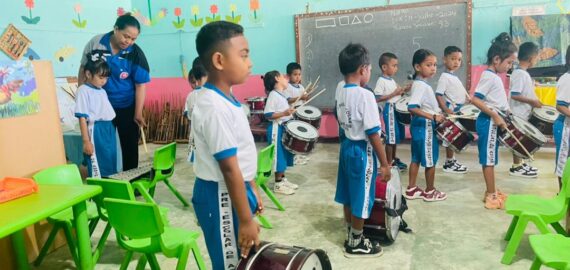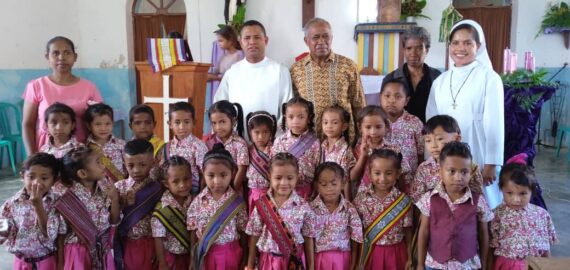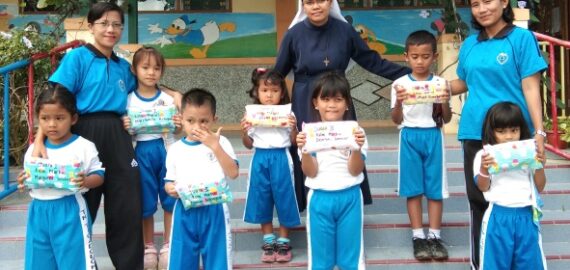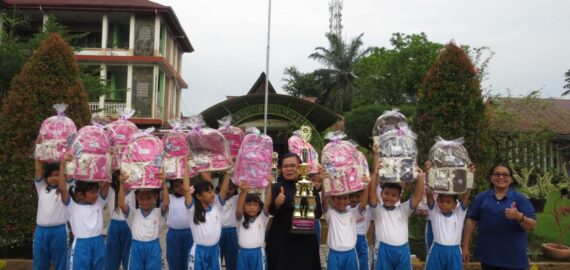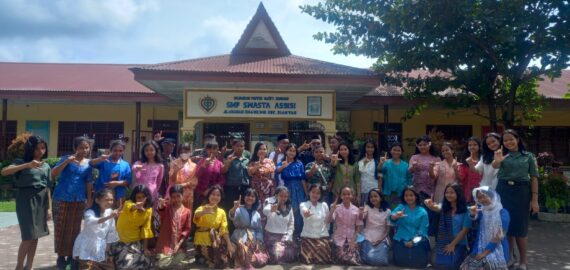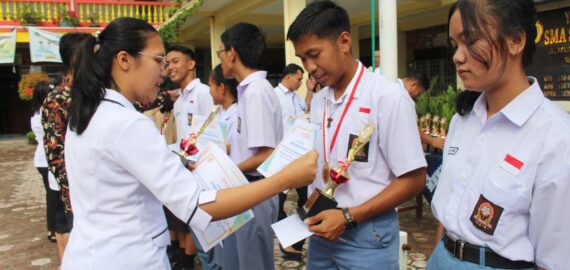As Educators and Agents of Love
---
Thus, the presence of FCJM sisters in the field of education is to serve
in love. They bear witness to the infinite love of God by educating
the younger generation and welcoming them in all their conditions.
EDUCATION
Educational Ministry is the Legacy of FCJM's Foundress
Since its foundation, FCJM has been working on education. This was inspired by Mother Clara’s concern about the lack of education for orphans. As early as 1862, she made every effort to establish a private elementary school for orphans. She applied to the government in Arnsberg, attaching the teacher’s examination certificate she had obtained in 1858 and a handwritten curriculum vitae on January 27, 1862. In a short process, the government and the Church had a positive impression of the Orphanage and the children, so Mother Clara was allowed to provide proper education to the orphans. Furthermore, the FCJM sisters were equipped with teacher education in order to be able to provide learning to the children.
The Catholic Education within FCJM Spirituality
This educational ministry bequeathed by the Foundress is continuously undertaken by FCJM sisters in the different countries up to the present time. The presence of FCJM sisters provides education in accordance with the times. The spirit instilled by Mother Clara is still flourishing, namely to support underprivileged children, educate the nation’s children, promote discipline, and instill spirituality. All of these are based on the spirituality of Mother Clara and St. Francis.
As Educators and Agents of Love
FCJM’s presence in the field of education is not merely as an educator participating in the learning of children, but also as a witness to the Love of the Sacred Heart of Jesus and the Immaculate Heart of Mary inspired by the Seraphic Father St. Francis of Assisi and Mother Maria Clara Pfänder, as commenced by Mother Clara.
Preferential Option for the Poor
FCJM participates in educating children for a better future. The concern and preference of the FCJM sisters for the poor in the field of education is evident through their efforts to help students from an economic point of view such as providing a reduction in school fees for those in need. The support of the sisters is a means of love for the students so that they can pursue education well and conveniently.
Discipline and Spiritual Formation
Catholic schools run by the FCJM Congregation contribute to the formation of the children’s personality by living a disciplined life. The sisters and educators also try to educate the young generation in the field of spirituality, namely regular prayer and religious services every day, spiritual formation such as recollections, retreats, and other spiritual uplifting. It’s not only the students, but also all the educators. Besides, some sisters are also actively involved in educating children in several other schools such as Public schools, Dioceses, and other institutions.
Romania
Our sister in Romania serve in education. They are providing material support for children to go to school. They fully support and coordinate the Saint Ursula Kindergarten from poor families benefit from education and material help.
Malawi
Catholic schools run by the FCJM Congregation contribute to the formation of the children’s personality by living a disciplined life.
Timor Leste
FCJM Sisters in Timor Leste serve in Kindergarten, stand under the umbrella of Fundação Filia Santissima Coraçao, which includes four units. Besides, They also participate in developing educational service in diocesan schools.
Brazil
Catholic schools run by the FCJM Congregation contribute to the formation of the children’s personality by living a disciplined life
Yayasan Puteri Hati Kudus
FCJM Sisters in Indonesia serve in education from Kindergarten to High School, including vocational school. These Educational Ministries stand under the umbrella of Puteri Hati Kudus Foundation, which includes 29 other school units. Besides, the sisters participate in developing educational services in governmental schools, diocesan schools, and other institutions.




